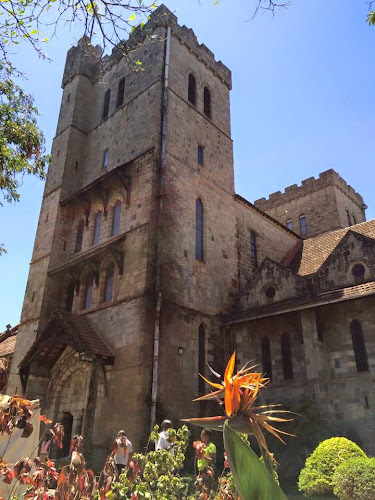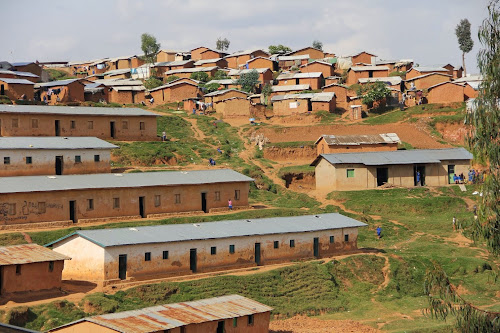It is overwhelming to look out over the beautiful mountains of Rwanda on a sun drenched morning with a cup of coffee enjoying the gentle breeze, a virtual paradise, and recall the reality for people living in the Gihembe Refugee Camp and the brutality of the Rwandan genocide. Amidst all the beauty of the land there are people who are still traumatized by massacres, rape, and suicide. Every day they could inadvertently walk by their perpetrator.
While listening to stories about life in a refugee camp and the horrendous aftermath of the 100 days of genocide, we were also hearing in the news about the flight of refugees from Somalia and Syria, the latter being hailed as the greatest humanitarian disaster in the history of the world. I'm numb. I can't help but ask the unanswerable question, "Why?"
I realize that the mere ability to reflect on suffering is, in large part, a luxury. Yes, suffering is part of the human condition, an essential part of our experience, but the stories I listened to in Kenya and Rwanda are beyond anything I can accept as essential. What does one do with this experience of #ShareTheJourney now that we are back in the USA? Being an oldest child, I, of course, feel responsible to paint the picture of what I've seen, give voice to what I have heard, correct the media accounts, defend the orphan and widow, and advocate for refugees. How does one do that when the world has chronic compassion fatigue and Westerners are tired of hearing how selfish and greedy they are, and I have developed an aversion to sanctimony and platitudes? Simplistic answers are empty of meaning even though our world wants understanding to come in sound bites or bullet points.
I wonder if I am looking for the answers among my own people and culture. Am I trying to reason out a response for others or extrapolate an answer to "fix" the situation from my understanding of the world--one which has not included the life and experiences of being a refugee? I think people are quite capable of resolving conflict in their lands, but when a family has very little time to decide whether to flee their home or stay and face the consequences of violent attacks, there's not a lot of time for pondering conflict resolution. They're just trying to stay alive, or more realistically, keep their children alive.
There was hopelessness in Gihembe Refugee Camp when we spoke with some of the refugees who were part of an ESL (English as a Second Language) class. They were told not to ask questions about their specific cases, ask if we knew if they were going to be resettled, and, if so, when that would be, or could we help them get their cases through the process (or the pipeline). Nevertheless, these were the only questions they cared about. They asked them anyway, and they were answered by the agency representative. One of the pilgrims asked a man, "What gives you hope?" "I have no hope," was the reply.
All we could offer was encouragement to continue learning English and continuing one's education, just in case you were lucky enough to get out. In truth, no matter what the result of their refugee processing, getting an education would be beneficial, but it wouldn't bring them more water.
"Why is the West Silent?" is one of the news headlines I read just a couple of days before we departed. I don't know, but I do not have to be. If refugees are pleading for us to advocate for them, then I will. Because I was asked to, not because I think I know best what I should do for a refugee, but because their lives and stories are just as important as my own. I hope their voices continue to speak and I hope I continue to listen even if my mind grows weary of it. So many of the people working on behalf of refugees told me they keep at it, facing discouragement day in and day out, because it's worth it for even one to make it.























